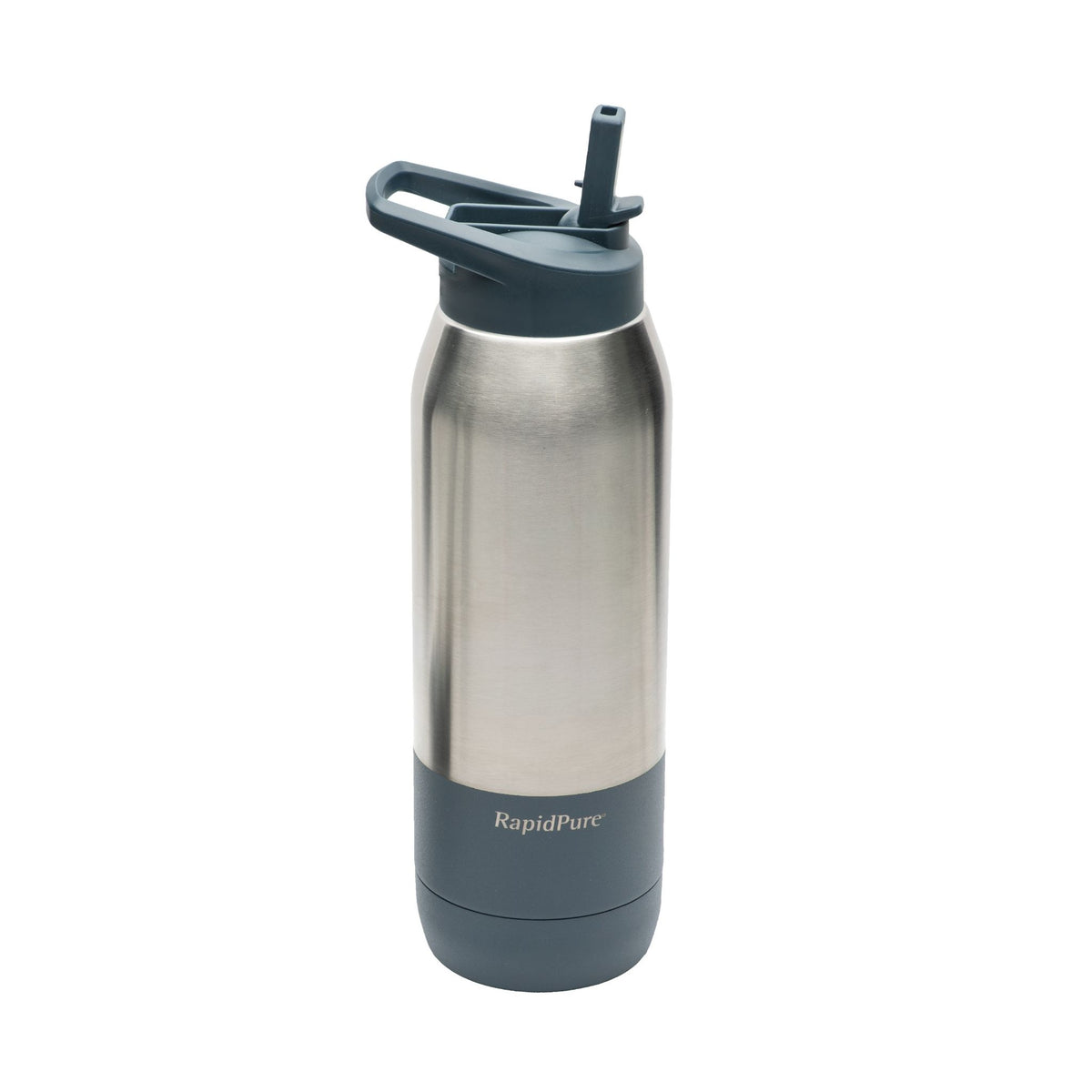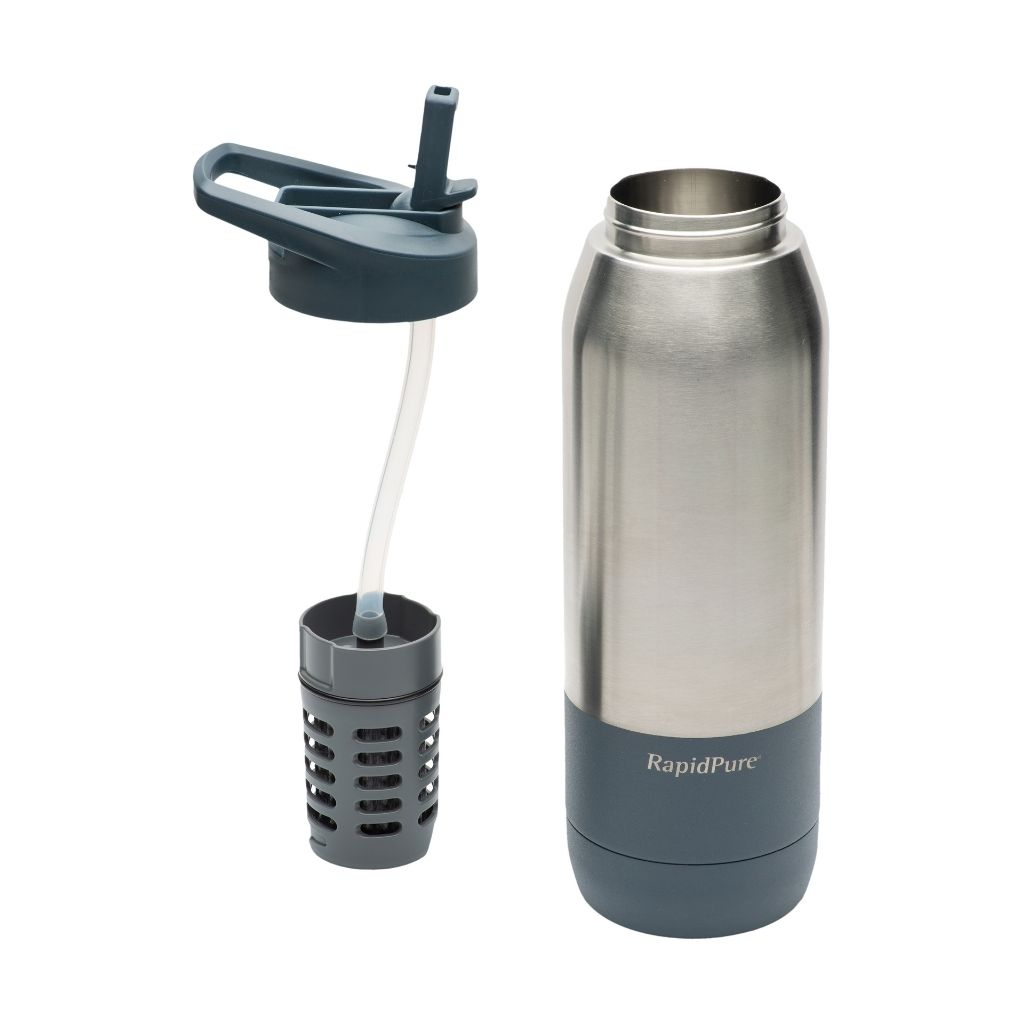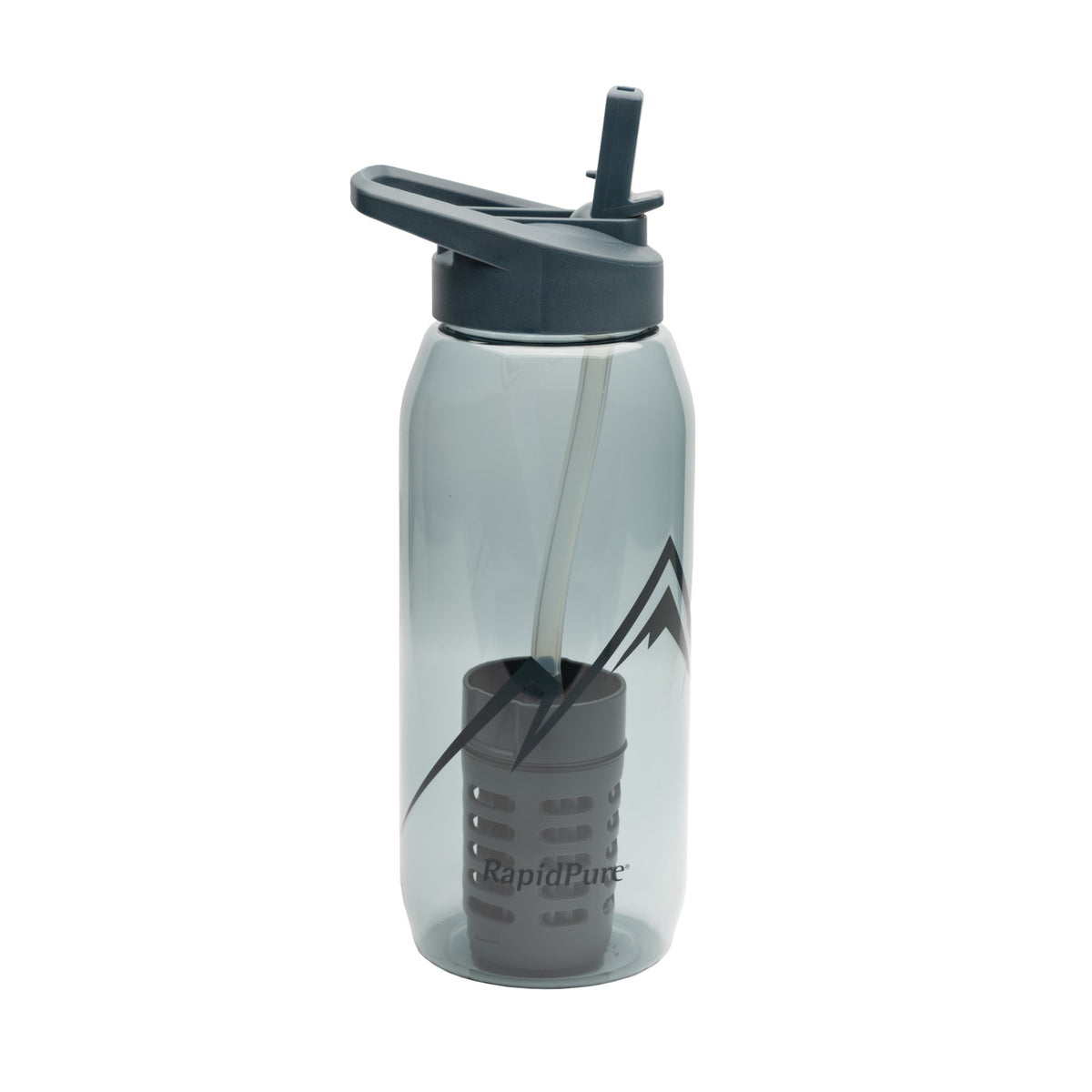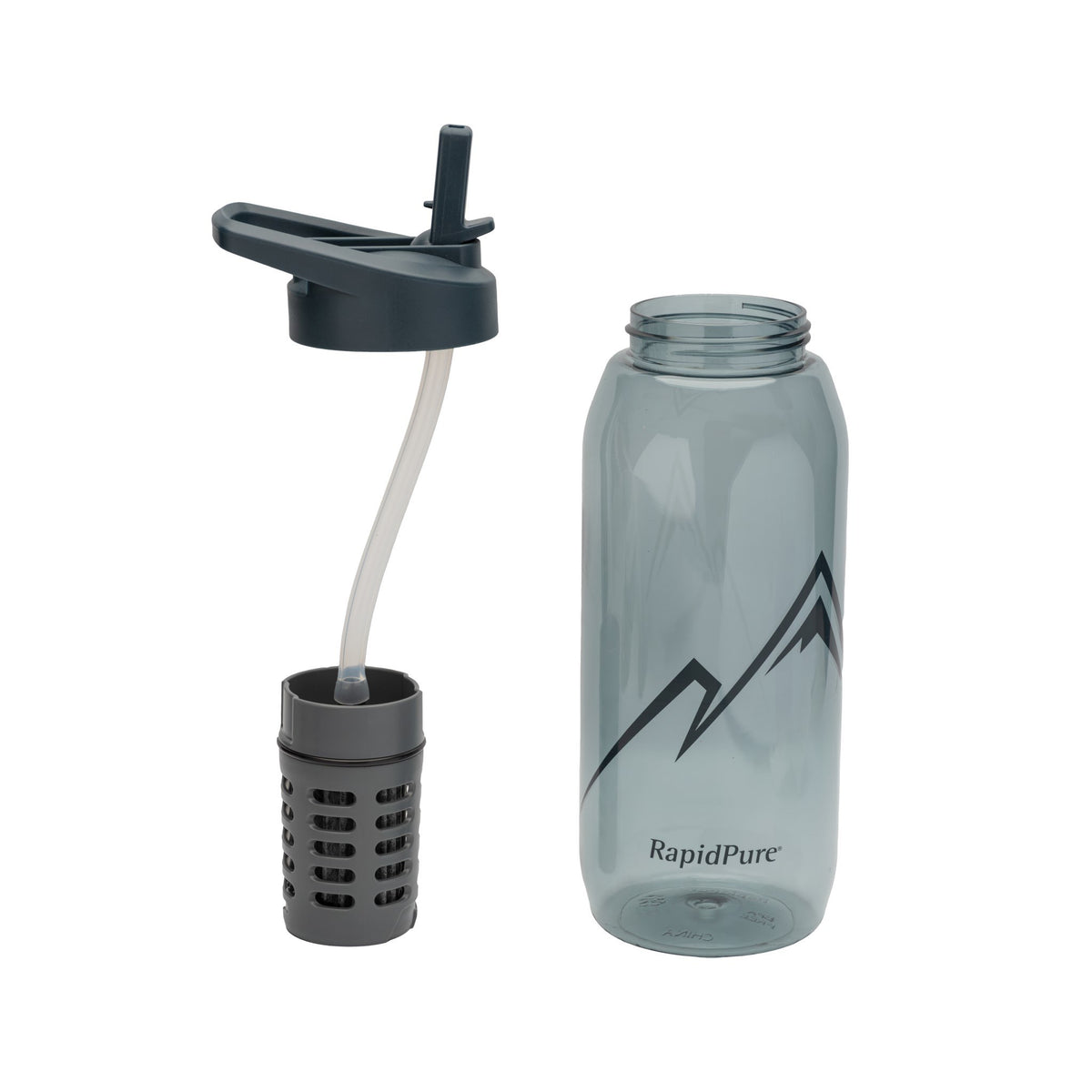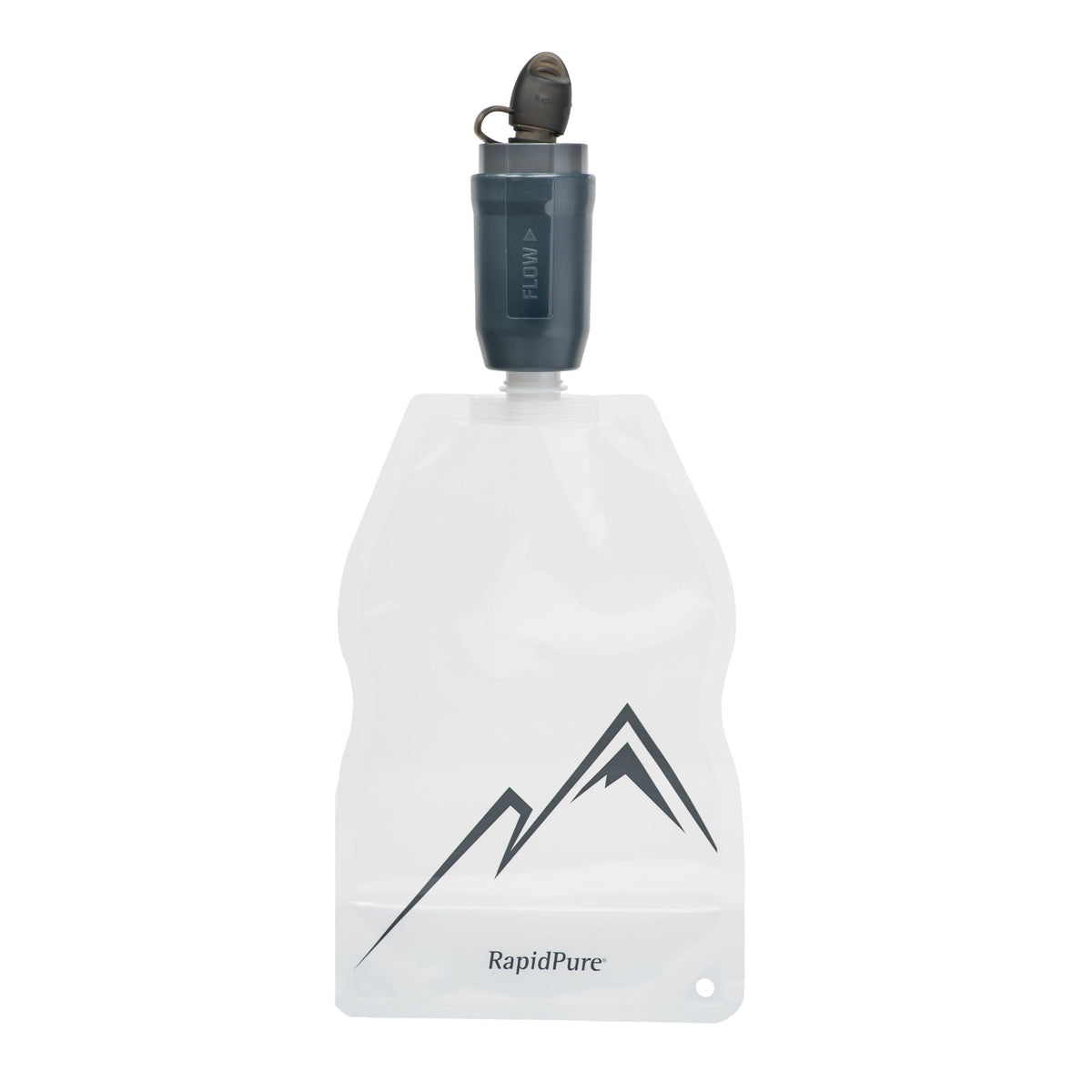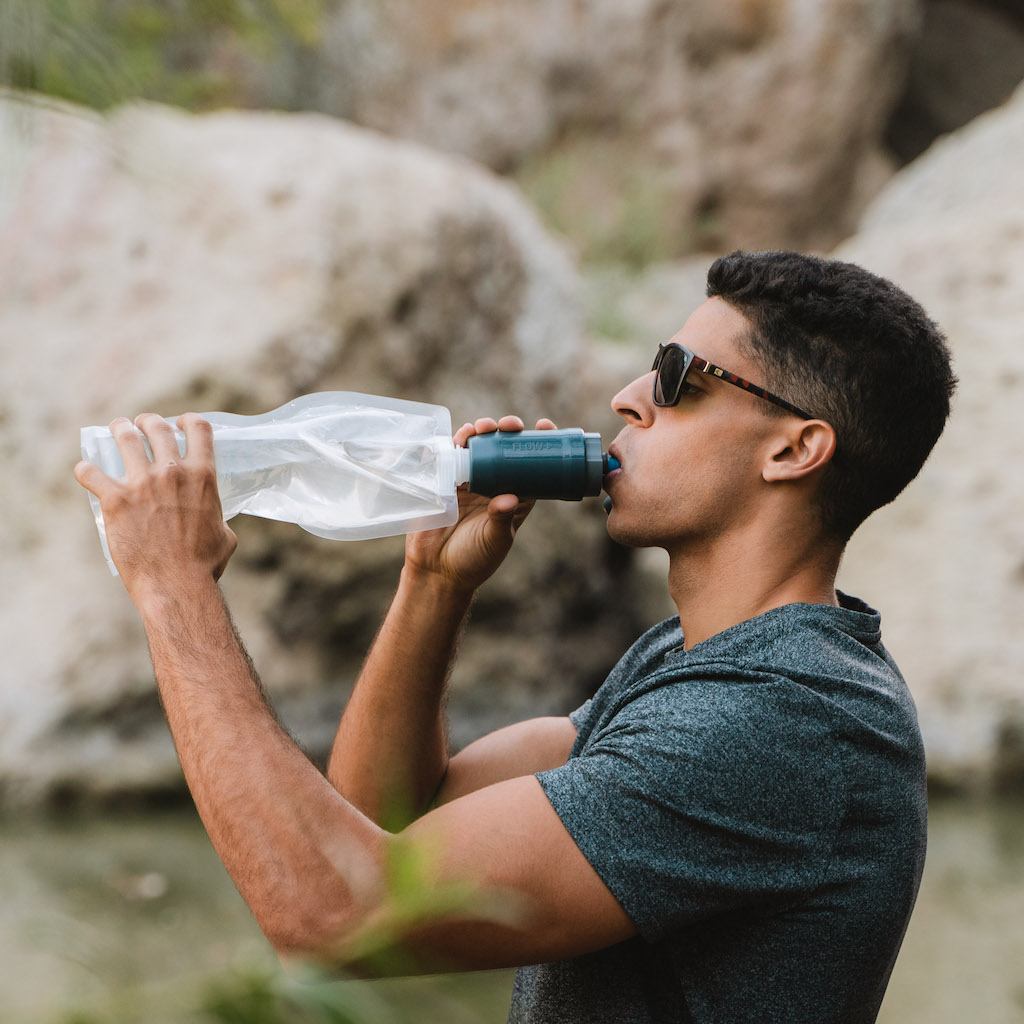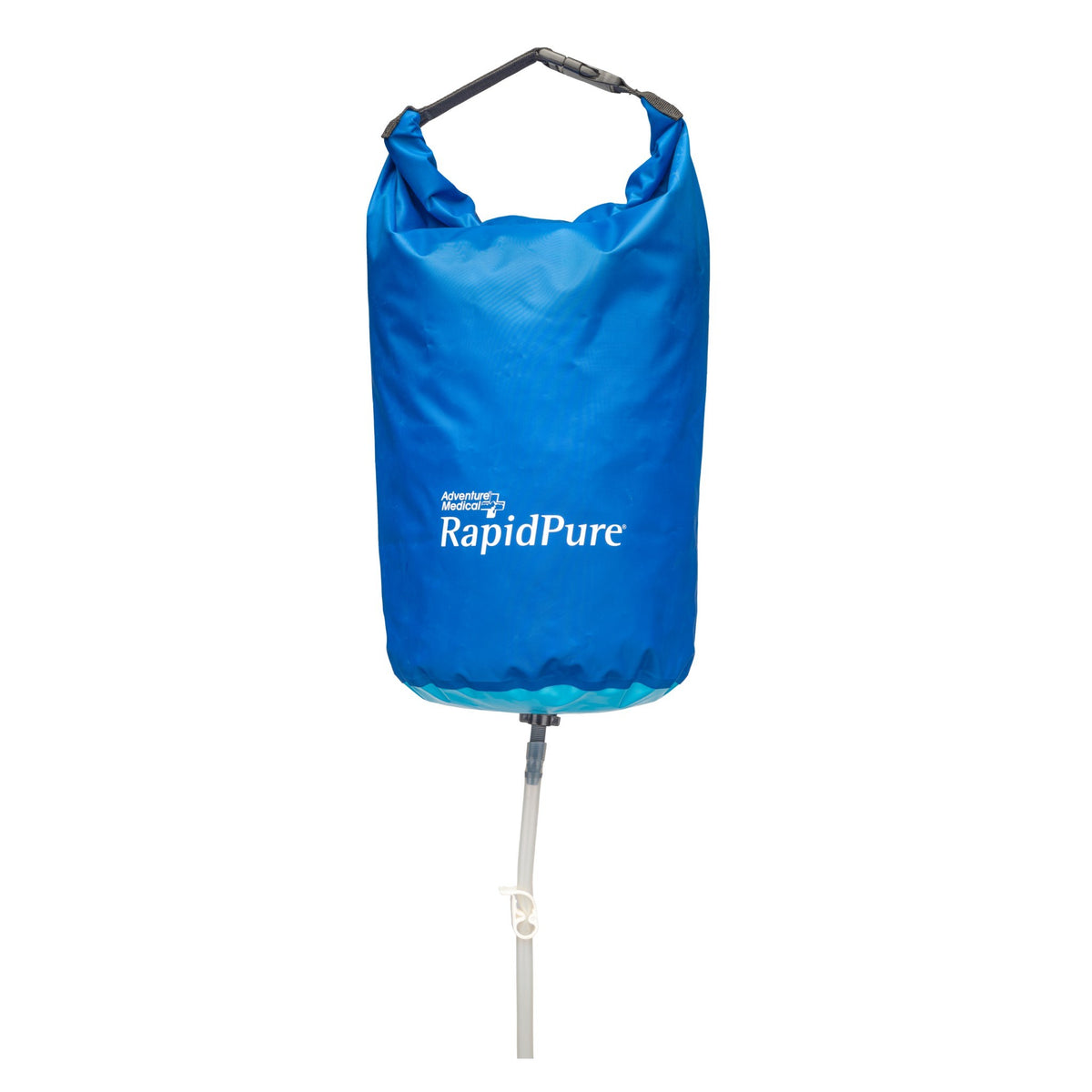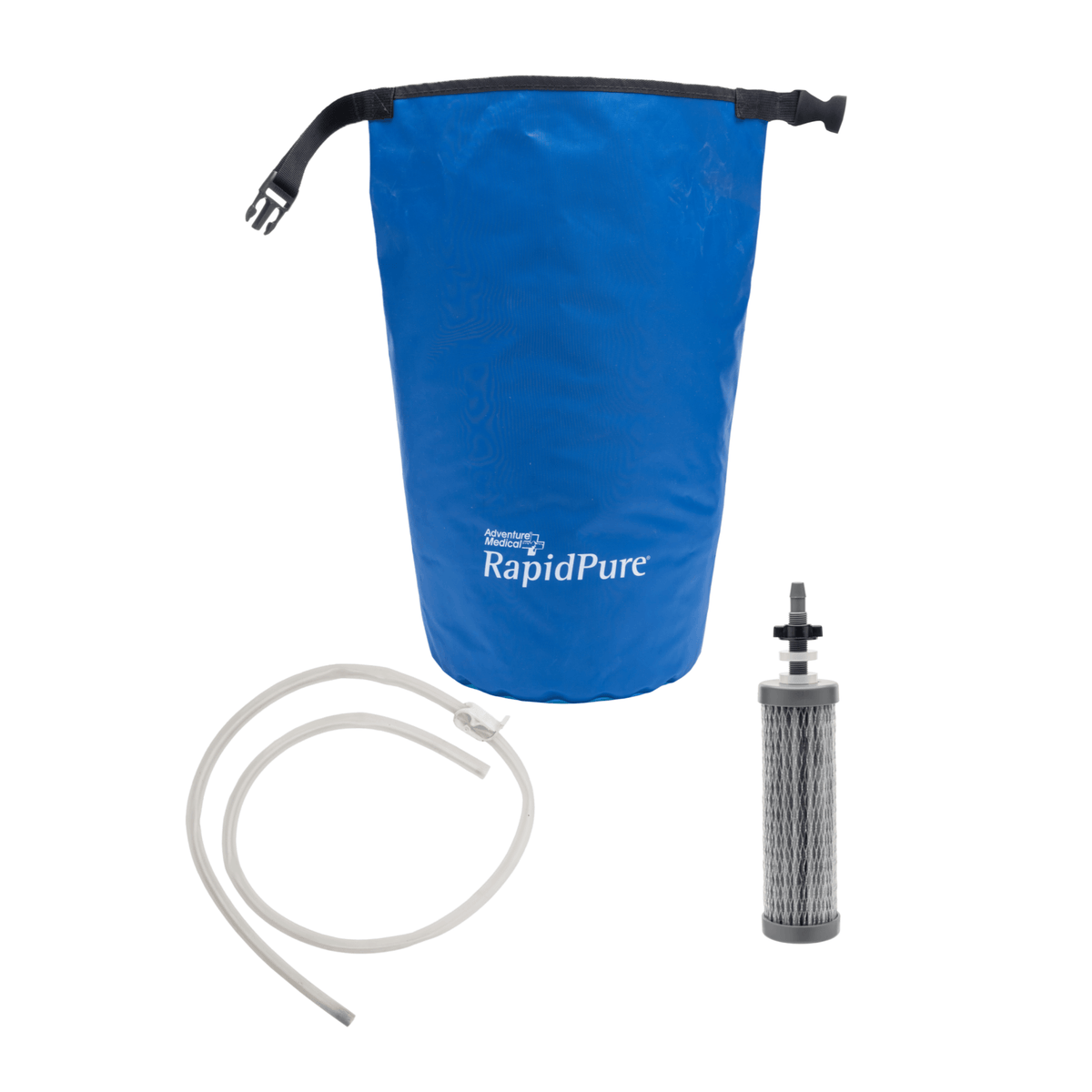Summer is the perfect time to get outdoors and be active, but it also brings hot temperatures that can lead to dehydration if you're not careful.
The American Hiking Society recommends drinking 0.5-1 quarts (roughly 0.5-1 liters) of water every hour that you’re hiking. The RapidPure Purifier+ Insulated Steel Water Bottle holds 1 liter of water, so aim to go through a bottle every 1-2 hours.
What Are the Signs of Dehydration?
Be on the lookout for possible signs of dehydration during your hike:
- Headache
- Dry mouth / thirstiness
- Lack of appetite / nausea
- Dizziness
- Confusion
- Dark colored urine
If you're a solo hiker, be especially vigilant, as even experienced hikers can be come confused and disoriented if they are dehydrated.
A headache is a common warning sign -- don't ignore it. You're likely already dehydrated at that point.
How to Prevent Dehydration
Before Your Hike:
- Start hydrating before you begin to hike. The American Hiking Society advises that "The best way to prevent dehydration is to consciously drink water slowly over several hours before intense exercise."
- Avoid alcohol and caffeine, which are diuretics that will dehydrate you.
- Pack plenty of water, or bring a portable water filter so you can safely drink water on-the-go.
While You Hike:
- Drink before you feel thirsty. By the time you're feeling thirsty, you're already dehydrated.
- Don't forget to eat as well as drink. Pack snacks where you can easily access them in your pack, and aim to include a mix of healthy fats, and salts, so that you can fuel your body and replenish your electrolytes.
- Consider electrolyte tablets or powder for longer hikes where you'll be sweating a lot. You can also try sports drinks, which contain salts, potassium and electrolytes (as well as a lot of added sugar), or simply add a pinch of salt and sugar to your drink.
- Monitor how much children are drinking if you're hiking with kids. Make sure they remember to drink water throughout the hike.
After Your Hike:
- Continue drinking after your hike. Even if you're resting after a long hike, you still need to replenish your fluids and electrolytes. Drink up!
How to Treat Dehydration on the Trail
If you or a hiking companion are experiencing dehydration, take a break and rest in a cool, shady spot for a few hours. Drink fluids slowly, and add salt/electrolytes. If your companion is experiencing severe dehydration, seek medical attention.
Don't take dehydration lightly. If you have a headache or feel thirsty, you're likely already in the early stages of dehydration, and need to take action. The American Hiking Society cautions that "prevention is the best treatment for dehydration. Dehydration is a gateway illness to heat exhaustion, heat stroke, and hypothermia, and can provoke shock from physical injury."


